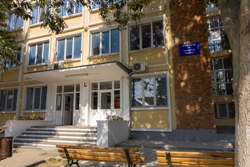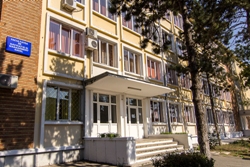Part-Time Education Structure
The part time education represents an integrated, flexible and complex education and training form organized at university level specifically within Merchant Marine Faculty, having common features and valences comparing with the traditional full time learning processes, respectively with the system of distance learning. Therefore, the part time education system is focused on students' needs, valorizing the mixture possibility of higher education learning manners and techniques, organizing direct activities for seminars and laboratories and distance learning modules based on on-line courses for theoretical competences, according with the methodological and teaching goals defined through the curriculum and its descriptors in terms of knowledge and abilities.
Through its functional features, the specific academic training in part-time education system encourages the access to the higher education for large mass of candidates, who are focused more to the direct professional developing and who stand for improving their own skills, in accordance with the labor market dynamic requirements or related to their self-interests or professional goals, without being necessary to break off the professional or social current activities.
The appearance and developing of higher part-time education system have been fostered by the diversification and increasing interest for education of various people from different area of age or professional field, in line with the latest trends of the labor market demand and supply standards, related to the dynamic curricula of different qualifications of the active personnel. The education processes are developed in an appropriate academic spirit defined by the university strategic and operational capabilities, in a flexible manner from financial, material and human resources point of views, by not affecting the quality of education dimension at all, the standards applied to the part-time education being identically as in full time education system case. In relation to its objectives and defined operational desiderates¸ the part-time education system includes specific educational study programs, specifically defined through the following functional features:
- The traditional teaching classes (lectures) were replaced by the distance techniques of study, based on the individual work, oriented toward theoretical knowledge and competences punctually defined by the curriculum in a flexible manner, but still standing to require for the student presence to the seminars and laboratories classes as compulsory direct teaching activities, in order to develop skills and practical abilities;
- The access to the information has being considerably diversified, by using the e-learning integrated platforms and on-line communication techniques, aiming the increasing of self training importance and the decreasing of that personal addiction to a tight program or to the full presence in a certain location at once;
- The e-learning and distance learning techniques are completed by a set of full time education activities with the students, in a classic "face-to-face" system, based on compulsory presence, in order to assure the carrying out of the practical activities, stipulated in the curriculum (through seminars, workshops, home-works, projects, professional practice and so on), likely to complete the training process with the learning outcomes coming from practical competences as skills and abilities, watching to guarantee the quality of the education processes assumed in the graduates' professional profile;
- There were developed combined forms of providing the access to the educational resources, worked out in a specific and unitary manner based on learning units, by supplying the course materials and laboratory guides, both in on-line platforms but also in media support and hard copy version;
- The distance learning methodologies and techniques were mixed with the direct teaching techniques specific to the full education methods, part-time education system assuming the harmonization of self-teaching and tutorial forms with classical teaching view in the framework of assuming the learning skills and practical training activities in the graduates profile as well.
From historical perspective, Part-time Education Structure had been organized within the "Mircea cel Batran" Naval Academy starting with the academic year of 1996-1997, with an initial duration of 6-years of the study programs. Starting with academic year of 2005-2006, according to the provisions of Law no. 288/2004 regarding the higher education studies organization, the length of studies in the part-time system has been stated within 4 (four) years, similarly to full time education. Starting on October 2011, The Part-time Education Structure has been organized within "Mircea cel Batran" Naval Academy as a distinctive functional structure, within Merchant Marine Faculty, according to the Decision of the "Mircea cel Batran" Naval Academy's Senate, keeping the criteria and requirements of currently national legislation framework. Adapting dynamically to the internal quality standards and to the national provisions regarding the organization and functioning of higher education institutions stated by the National Education Law, starting with the same date has been approved a new organizational structure and a new functioning regulations for the Part-time Education Structure, from department, as it had been functioned till 2011, into a faculty distinctive structure. Nowadays, the part-time education studies within "Mircea cel Batran" Naval Academy are organized and managed according to the provisions of Education Law no. 1/2011, G.D. no. 1011/8th of October 2001, regarding organization functioning of part-time education in higher education institutions, MECI Regulations regarding the higher education and in particular, the part-time education and, finally according to internal legal and regulation framework.
The operational management of the Part-time Education Structure:
Vice-Dean for Part-Time Education
Lecturer Bautu Andrei, PhD
Secretariat:
Civilian Personnel, Gabriela SOROCIANU






